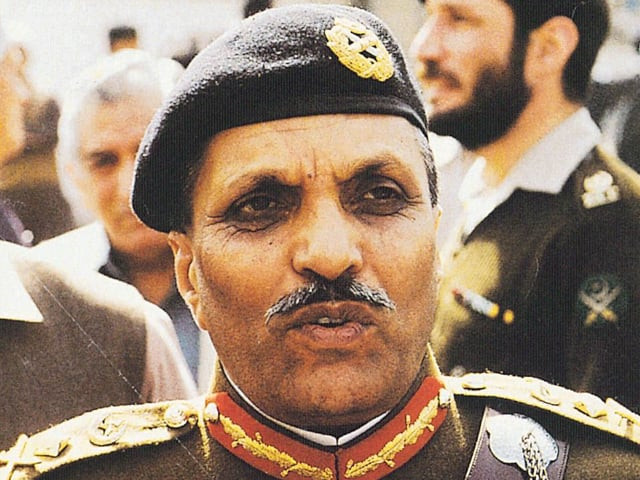South Asia: Historians stress the need for unbiased history
Zia’s regime blamed for revision of history syllabi.

General Ziaul Haq. PHOTO: FILE
Historians from several countries stressed the need for an unbiased and balanced historiography of South Asia at the inaugural session of the three-day 24th International Pakistan History Conference on Monday.
The conference, titled History and Historiography of South Asia, was organised by the Punjab University History Department, Pakistan Historical Society and PU Political Science Department. Several historians emphasised the need for history that was free of the establishment’s influence.
In her keynote address, Dr Sarah Ansari from University of London defined the elements and importance of public history. She said public history was used in the media, curricula, the internet, museums and catered to a mass audience. She said academic history, on the other hand, was taught in universities.
She said she had strong reservations about public history as it could be manipulated by governments, radicals and certain establishments and used to serve political interests and inform people selectively.
Ansari said in Pakistan history syllabi was revised their during General Zia’s regime to promote a specific ideology. She said collective memory was deployed selectively, and that history was an open field that was often used for specific purposes.

Ansari said she sought moral commitment by historians to produce neutral and unbiased history. She argued for the need to connect academic and public history, so that the lay person would be provided with an opportunity to think independently.
Conference President Saadia Rashid said that although scientific methods had been introduced into the social sciences during colonial rule in the subcontinent, there was also an element of subjectivity. She said the Pakistan Historical Society was encouraging research on history and attempting to revive a culture of conferences since 2000.
Dr Syed Liaqat Hussain Moini, sajjada nasheen of the Moeen-uddin Chishti shrine in Ajmer, said one should review documents and facts objectively before passing a judgment. He said sufis had provided a vast literature for historical sources but it had not been given due importance. He said this literature could also be used to further harmony in the region.
History Department Chairman Iqbal Chawla said it was unfortunate that history had lost its appeal for the general public. He said students found history boring and irrelevant to the needs of the present day. He said in the age of globalisation it was important to understand a shared historical background. Hesaid the main thrust of the conference was to prepare students to be well versed in the literature, methods and interpretive debates in the discipline of history.
University of Karachi Pakistan Study Centre Director Jaffar Ahmad said some of the country’s politicians needed a refresher course in history. He said that during the first three decades after the creation of Pakistan, universities had weakened as education was not a priority.
He said military rule for more than 32 years had not allowed for diverse opinions. He said that history had been distorted in Pakistan.
He said the situation was improving for the discipline since the establishment of the Higher Education Commission. He stressed the need for an exchange of faculty and students between universities.
PU Vice Chancellor Mujahid Kamran and Historical Society General Secretary Ansar Zahid Khan were also present.
Published in The Express Tribune, April 15th, 2014.


















COMMENTS
Comments are moderated and generally will be posted if they are on-topic and not abusive.
For more information, please see our Comments FAQ